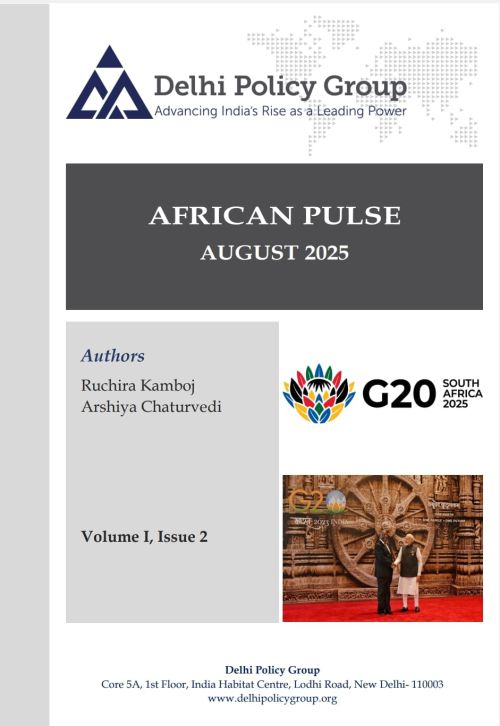African Pulse
This monthly covers strategic and economic security related developments in Africa, which hold particular relevance for India.
In this issue, subtitled ‘South Africa, G20, and the Global South’, the authors review the Global South’s priorities, the G20’s developing-country arc since 2022, South Africa’s 2025 agenda, and options for stronger South-South cooperation.
Since 2022, a unique arc of developing-country leadership of the G20 has unfolded - Indonesia, India, Brazil, and now South Africa. This sequence is unprecedented, and South Africa’s turn marks its culmination. For the first time, Africa holds the presidency of the G20, immediately after the African Union’s admission in 2023, placing the continent at the centre of shaping the G20 agenda.
This continuity has enabled the Global South, represented through this arc of leading developing countries, to prioritise key issues such as debt, climate finance, inequality, IFI reform and digital public infrastructure - priorities rooted in its leading concerns but resonant with the wider global agenda.
For South Africa, the moment is especially historic. Despite strains - most visibly the absence of the United States at senior levels - it is determined to spotlight African and Global South concerns. Its chosen theme of ‘sustainability, equality, and solidarity’ reflects this orientation, as does the launch of a major study on inequality and its impact on growth, development, and multilateral institutions. The emphasis on debt, climate finance, and IFI reform builds continuity with the agendas advanced by its three predecessors from the Global South.
Yet, this momentum remains fragile. With the G20 baton soon to pass back to the North, there is a risk of dilution unless institutional mechanisms are created to sustain Southern priorities. India’s initiative in convening the Voice of the Global South ahead of its presidency, and its proposal of a Global Development Compact at the 2024 Summit, laid useful foundations. Building on these, it may now be time to consider an informal coordination platform for Global South members within the G20 process, providing a more regular and stronger channel for Southern concerns, while advancing tangible steps on debt, climate finance, and inequality.
Such coordination is not merely desirable but imperative. It would consolidate the momentum of the past four years of Global South presidencies, reinforcing a clear collective voice in a rapidly evolving international landscape. Without this, the South risks once again being pushed to the margins, despite its growing weight in terms of population, economic power, and pressing developmental needs.
To read this African Pulse, Vol. I, Issue 2, please see the PDF attached.



